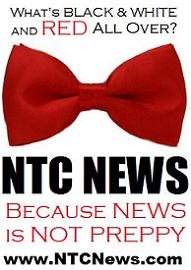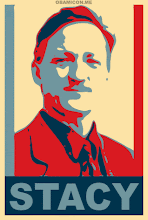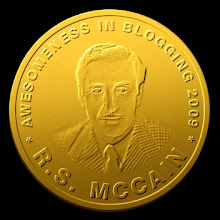I have regrets, of course -- including mistakes of excess and failures of imagination, posturing and posing, inflated and heated rhetoric, blind sectarianism and a lot else. No one can reach my age with their eyes even partly open and not have hundreds of regrets. The responsibility for the risks we posed to others in some of our most extreme actions in those underground years never leaves my thoughts for long."Unleashed" by whom? Not the Marxist-Leninist regime in Hanoi, which Ayers actively supported. He never tried to stop that violence. The guys who tried to stop the Marxist-Leninist violence were the U.S. military -- the "pigs" Ayers tried to kill.
The antiwar movement in all its commitment, all its sacrifice and determination, could not stop the violence unleashed against Vietnam. And therein lies cause for real regret.
The Weather Underground's bombings were, according to Ayers, "symbolic acts of extreme vandalism directed at monuments to war and racism." An officer's dance at Fort Dix, N.J., was one of those "monuments," and when the bomb planned for that event accidentally detonated, it was powerful enough to kill three people and destroy the building in which it was being built. Ah, but here's the Big Lie by which Ayers attempts to evade responsibility for that:
In 1970, I co-founded the Weather Underground, an organization that was created after an accidental explosion that claimed the lives of three of our comrades in Greenwich Village.A damned lie. The radical Weatherman faction of SDS emerged in the wake of protests at the 1968 Democratic convention, staged its first "extreme vandalism" during the October 1969 "Days of Rage" in Chicago, and declared its dedication to terrorist "revolutionary" action at a December 1969 "war council" in Flint, Michigan. Their express intent was to be an American version of the Viet Cong. To try to claim that the organization was not created until after the March 1970 Greenwich Village townhouse explosion is dishonest revisionism.
The New York Times has disgraced itself by publishing this Big Lie, which is as false as anything Jayson Blair ever wrote.
More comment at Newsbusters, Jammie Wearing Fool, Don Surber, Cold Fury and Nice Deb.
UPDATE: Eric Posner at the Volokh Conspiracy:
Under current law, Ayers was a terrorist. This definition is not idiosyncratic; similar definitions can be found in the laws of foreign countries and in international treaties. Ayers seems to think he ought to be excused for violence because his motives were good, but that is the excuse that terrorists always offer -- that their political goals justify their use of violence -- and naturally the legal definition could not permit such a defense without subverting itself, or turning every terrorism trial into a debate about whether the political ends of the defendants are "good" or "bad" from a moral or political perspective.Terrorism is about means, not ends. There were many opponents of U.S. involvement in Vietnam who did not resort to bombings as a means to express their opposition.
UPDATE II: Jules Crittenden observes: "In running Ayers' lengthy self-absolution, the New York Times charitably overlooks its own reporting on the subject" -- a 1970 Weather Underground bombing in San Francisco killed one policeman and severely injured another.
UPDATE III: Allahpundit: "Terrorists, it seems, kill people indiscriminately whereas the Weathermen never tried to kill anyone. Except cops. And soldiers."
UPDATE IV: Ace is pretty cheesed, too.
UPDATE V: Speaking of Ace, a friend reminds me of an AOSHQ post by Dave in Texas, linking a 1977 New York Times article about Ayers' and his colleagues' ties to Cuban intelligence:
Cuban espionage agents operating in the United States and Canada supplied limited aid to the Weather Underground, a militant antiwar organization, in the late 1960's and 1970's, according to a top-secret report of the Federal Bureau of Investigation . . . .The Weathermen were willing agents of Marxist regimes hostile to the United States. Ayers is not only a terrorist, but a traitor. If it hadn't been for Jack Ruby, I suppose we'd now be reading New York Times op-eds by 69-year-old Lee Harvey Oswald: "I have regrets, of course . . ."
After the Weathermen went "underground" in 1970 and many of them were being sought by the F.B.I. on criminal charges, Cuban intelligence officers were in touch with them from both the New York mission and the Cuban Embassy in Canada.
Cuban officials helped several Weather Underground adherents who feared arrest in the United States to travel to Prague, Czechoslovakia, and then to reenter the United Slates surreptitiously.













No comments:
Post a Comment